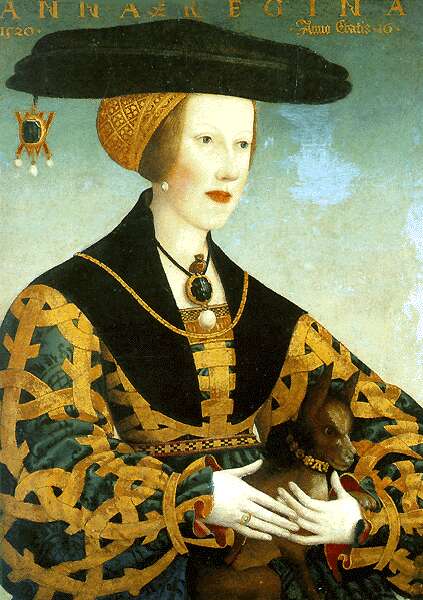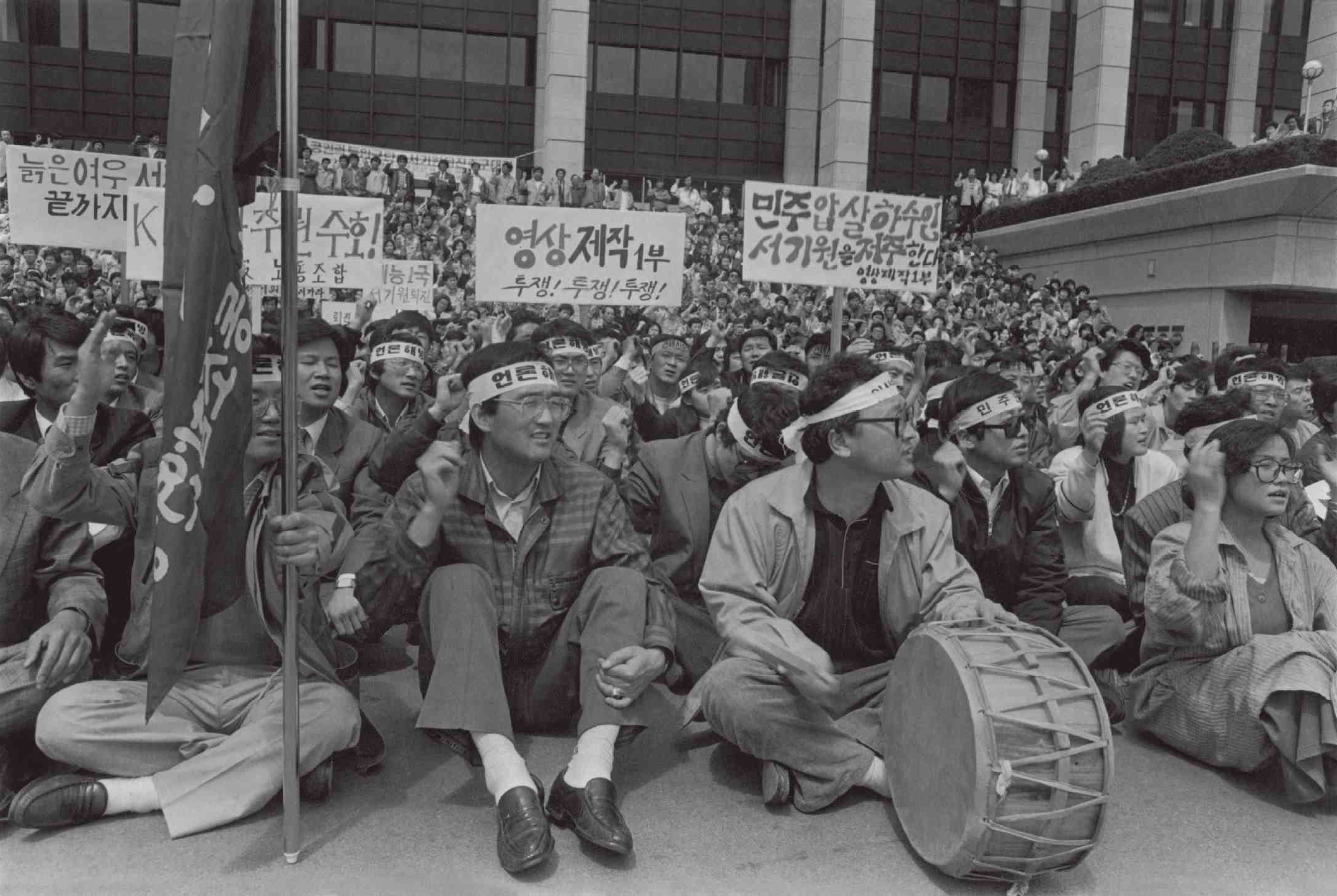|
Geun-bi Yi
Royal Consort Geun of the Goseong Yi clan (; 1365 – ?) was a Korean royal consort as the first wife of U of Goryeo, King U and the mother of his successor, Chang of Goryeo, King Chang. She was the fourth Goryeo queen who didn't receive a posthumous name like the other consorts following Hui-bi Yun, Lady Yun. Biography Early life The future Royal Consort Geun was born in 1365 into the Goseong Lee clan, Goseong Yi clan in Goseong County, South Gyeongsang, Goseong County as the daughter of Yi Rim (), who was a relative of Yi In-im (),''Goryeosa'', vol. 45. Important families: vol. 45. King Gongyang: Month 12, Coronation year. and Lady Hong of the Namyang Hong clan. Marriage and palace life In 1379, she became the consort of the 13-year-old U of Goryeo and given title as Consort Geun (), also lived in Hudeok Mansion (). Following this, Yi Rim was honoured as "Internal Prince Cheolseong" () and his wife became "Lady of Byeonhan State" () alongside his mother became "Grand Lady of Sam ... [...More Info...] [...Related Items...] OR: [Wikipedia] [Google] [Baidu] |
Queen Consort
A queen consort is the wife of a reigning king, and usually shares her spouse's social Imperial, royal and noble ranks, rank and status. She holds the feminine equivalent of the king's monarchical titles and may be crowned and anointed, but historically she does not formally share the king's political and military powers, unless on occasion acting as regent. In contrast, a queen regnant is a female monarch who rules ''suo jure'' (Latin for, "in her own right") and usually becomes queen by inheriting the throne upon the death of the previous monarch. A queen dowager is a widowed queen consort, and a queen mother is a queen dowager who is the mother of the current monarch. Titles When a title other than king is held by the sovereign, his wife can be referred to by the feminine equivalent, such as princess consort or empress consort. In monarchies where polygamy has been practised in the past (such as Morocco and Thailand), or is practised today (such as the Zulu people, Zulu ... [...More Info...] [...Related Items...] OR: [Wikipedia] [Google] [Baidu] |
Taejo Of Joseon
Taejo (; 4 November 1335 – 27 June 1408), personal name Yi Seong-gye (), later Yi Dan (), was the founder and first monarch of the Joseon dynasty of Korea. After overthrowing the Goryeo dynasty, he ascended to the throne in 1392 and abdicated six years later during a strife between his sons. He was honored as Emperor Go () following the establishment of the Korean Empire. Taejo emphasized continuity over change. No new institutions were created, and no massive purges occurred during his reign. His new dynasty was largely dominated by the same ruling families and officials that had served the previous regime. He re-established amicable ties with Japan and improved relations with Ming dynasty, Ming China. Biography Early life The future King Taejo was born in Ssangseong Prefecture on the frontiers of the Yuan dynasty. Taejo's father was Yi Cha-ch'un, an official of Korean ethnicity serving the Mongols, Mongol-led Yuan. His mother, Queen Uihye, Lady Ch'oe, came from a famil ... [...More Info...] [...Related Items...] OR: [Wikipedia] [Google] [Baidu] |
Doosan Encyclopedia
''Doosan Encyclopedia'' () is a Korean-language encyclopedia published by Doosan Donga (). The encyclopedia is based on the ''Dong-A Color Encyclopedia'' (), which comprises 30 volumes and began to be published in 1982 by Dong-A Publishing (). Dong-A Publishing was merged into Doosan Donga, a subsidiary of Doosan Group, in February 1985. The ''Doosan Encyclopedia'' is a major encyclopedia in South Korea. Digital edition EnCyber The online version of the ''Doosan Encyclopedia'' was named EnCyber, which is a blend of two English words: ''Encyclopedia'' and ''Cyber''. The company has stated that, with the trademark, it aims to become a center of living knowledge. EnCyber provides free content to readers via South Korean portals such as Naver. Naver has risen to the top position in the search engine market of South Korea partially because of the popularity of EnCyber encyclopedia. When Naver exclusively contracted Doosan Doonga in 2003, the former paid multi billion won to the ... [...More Info...] [...Related Items...] OR: [Wikipedia] [Google] [Baidu] |
Chŏng Inji
Chŏng Inji (; December 28, 1396 – November 26, 1478) was a Korean Neo-Confucian scholar, historian who served as Vice Minister of Education or Deputy Chief Scholar (Head of Office for Special Advisors) during the reign of King Sejong the Great, Minister of Rites during the reign of King Munjong and Danjong, Left or Second State Councillor from 1453 to 1455 during the reign of King Danjong, and Chief State Councillor from 1455 to 1458 during the reign of King Sejo. He was nicknamed Hakyeokjae (). He was from the Hadong Chŏng clan () Letters of Chŏng Inji He is perhaps best known for having written the postscript of the '' Hunmin Jeongeum Haerye'', the commentary on and explanation of the native alphabet Hangeul invented by King Sejong in 1443. He also contributed to the '' Goryeo-sa'', the official history of the Goryeo dynasty, and the '' Yongbi Eocheon-ga'' (). His second son, Chŏng Hyŏnjo, was married to Princess Uisuk, the second daughter of King Sejo of Jos ... [...More Info...] [...Related Items...] OR: [Wikipedia] [Google] [Baidu] |
Jeong Do-jeon (TV Series)
''Jeong Do-jeon'' () is a 2014 South Korean television series starring Cho Jae-hyun in the title role as Jeong Do-jeon, a real-life historical figure (1342–1398) who was one of the most powerful scholars and politicians of his time and a close supporter of King Taejo, the founder of the Joseon Dynasty. The period drama shows the crucial role Jeong had in the planning and founding of Joseon and the obstacles he faced in the process, as well as his lasting impact on Joseon's politics and laws. It aired on KBS1 from January 4 to June 29, 2014, on Saturdays and Sundays at 21:40 for 50 episodes. ''Jeong Do-jeon'' received solid ratings and was hailed by critics as one of the most "authentic and realistic" Korean historical dramas in the new millennium. The series won the Grand Prize (Daesang), Best Director and Best Writer at the 41st Korea Broadcasting Awards, and Cho Jae-hyun won Best TV Actor at the 50th Baeksang Arts Awards. Plot The drama begins in 1374, the final year of Kin ... [...More Info...] [...Related Items...] OR: [Wikipedia] [Google] [Baidu] |
Korean Broadcasting System
The Korean Broadcasting System (KBS; ) is the public broadcasting, national broadcaster of South Korea. Founded in 1927, it is one of the leading South Korean television and radio broadcasters under the government of South Korea. The KBS operates seven radio networks, ten television channels and multiple Internet-exclusive services. Its flagship terrestrial television television station, station, KBS1, broadcasts on Television channel, channel 9 while KBS2, an entertainment-oriented network, broadcasts on channel 7. KBS also operates the international service KBS World, which provides television, radio and online services in 12 languages. History Early radio broadcasts The KBS began as Gyeongseong Broadcasting Station () with call sign JODK, established by the Governor-General of Korea on 16 February 1927. It became the in 1932. After Korea was liberated from Japanese rule at the end of World War II, this station started using the call sign HLKA in 1947 after the United St ... [...More Info...] [...Related Items...] OR: [Wikipedia] [Google] [Baidu] |
The King Of Chudong Palace
''The King of Chudong Palace'' () is a 1983 South Korean historical television series, the first installment of the drama series ''500 Years of Joseon Dynasty'' by director Lee Byung-hoon and writer Shin Bong-seung. It aired on MBC from March 31 to July 1, 1983, for 27 episodes. It portrays the fall of Goryeo and the founding of Joseon, with the reigns of Taejo, Jeongjong and Taejong. Cast * Bang Hoon as King U of Goryeo * Jeon Hyeon as King Chang of Goryeo * Kim Chang-sook as Geun-bi Yi * Kim Woong-chul as King Gongyang of Goryeo * Kim Young-ae as Sun-bi No * Han Young-sook as Jeong-bi An * Kim Ji-young as Hye-bi Yi * Kang Suk-ran as Yeong-bi Choi * Lee Chi-woo as Wang U, prince Jeongyang * Lee Kyung-ho as Wang Seok, prince Jeongseong * Kim Gil-ho as Choi Young * Park Young-tae as Jo Min-soo * Lee Dae-ro as Lee Saek * Hong Gye-il as Jeong Mong-ju * Bak Il as Lee Im * Joo Hyun as Im Gyeon-mi * Kim Se-yoon as Do Gil-bu * Moon Hoe-won as Ban Bok-hae * Oh Seung-myung as Kim ... [...More Info...] [...Related Items...] OR: [Wikipedia] [Google] [Baidu] |
Munhwa Broadcasting Corporation
Munhwa Broadcasting Corporation (MBC; ) is one of the leading South Korean television and radio broadcasters. Its flagship terrestrial television station MBC TV broadcasts as channel 11. MBC News Now broadcasts as channel 12. Established on 2 December 1961, MBC's terrestrial operations have a nationwide network of 17 regional stations. Although it operates on advertising, MBC is classified as a public broadcaster as its largest shareholder is a public organization, the Foundation of Broadcast Culture. MBC consists of a multimedia group with one terrestrial TV channel, three radio channels, five cable channels, five satellite channels and four DMB channels. MBC is headquartered in Digital Media City (DMC), Mapo District, Seoul and has the largest broadcast production facilities in Korea including digital production centre Dream Center in Ilsan, indoor and outdoor sets in Yongin Daejanggeum Park. History Radio era (1961–1968) Launching the first radio broadc ... [...More Info...] [...Related Items...] OR: [Wikipedia] [Google] [Baidu] |
Foundation Of The Kingdom
Foundation(s) or The Foundation(s) may refer to: Common uses * Foundation (cosmetics), a skin-coloured makeup cream applied to the face * Foundation (engineering), the element of a structure which connects it to the ground, and transfers loads from the structure to the ground * Foundation (evidence), a legal term * Foundation (nonprofit), a type of charitable organization ** Foundation (United States law), a type of charitable organization in the U.S. ** Private foundation, a charitable organization that might not qualify as a public charity by government standards Arts, entertainment, and media Film and TV * ''The Foundation'', a film about 1960s-1970s Aboriginal history in Sydney, featuring Gary Foley * ''The Foundation'' (1984 TV series), a Hong Kong series * ''The Foundation'' (Canadian TV series), a 2009–2010 Canadian sitcom * "The Foundation" (''Seinfeld''), an episode * ''Foundation'' (TV series), an Apple TV+ series adapted from Isaac Asimov's novels Games * ' ... [...More Info...] [...Related Items...] OR: [Wikipedia] [Google] [Baidu] |
KBS1
KBS 1TV is a South Korean free-to-air television channel that launched on 31 December 1961 and is owned by Korean Broadcasting System. The channel offers more serious programming than its sister channel KBS2, and airs with no commercials. History KBS1 was not the first television channel in South Korea. DBC (Daehan Broadcasting) was established on May 12, 1956 and aired to a limited television audience. The channel was owned by the Korean RCA Distribution Company (KORCAD) and initially took on its name, as well as the call sign HLKZ TV. The station broadcast on the same frequency KBS1 would later operate on in Seoul. An audience of hundreds of viewers watched the inaugural broadcast on 32 television sets installed in street corners, 25 in newspaper buildings and on school playgrounds throughout Seoul. It was the only television station in Korea before the start of AFKN TV on September 15, 1957. On February 2, 1959, a fire broke out at the DBC facilities, causing the station ... [...More Info...] [...Related Items...] OR: [Wikipedia] [Google] [Baidu] |
Namyang Hong Clan
Namyang Hong clan () is one of the Korean clans. Their Bon-gwan is in Hwaseong, Gyeonggi, Gyeonggi Province. According to the research held in 2015, the number of Namyang Hong clan members was 487,488. The Namyang Hong clan is divided into the Dang Hong (남양 홍씨 당홍계, 南陽 洪氏 唐洪系) and the To Hong (남양 홍씨 토홍계, 南陽 洪氏 土洪系) lineages. Although they share the surname Hong and an ancestral seat in Hwaseong's Namyang-eup, and so are grouped together as the Namyang Hong clan, the two lineages do not share a common first ancestor and are not related. Dang Hong lineage The Dang Hong lineage of the Namyang Hong clan claims as its progenitor Hong Cheon-ha (홍천하, 洪天河), who was dispatched to Goguryeo as a scholar of the Tang dynasty and settled in the same place as a refugee because of upheaval in the Tang dynasty. The founder of this lineage was Hong Eun-yeol (홍은열, 洪殷悅), who it is claimed descended from Hong Cheon-ha. T ... [...More Info...] [...Related Items...] OR: [Wikipedia] [Google] [Baidu] |
Cheongju
Cheongju (; ) is the capital and largest list of cities in South Korea, city of North Chungcheong Province in South Korea. The 'Cheong' in the name of Chungcheong Province is the Cheong of Cheongju. History Cheongju has been an important provincial town since ancient times. In the Cheongju Mountains, particularly in the area where Sangdang Sanseong is located, ruins dating from the Old Stone Age to the Bronze Age have been discovered. Settlements associated with the Paleolithic Age have also been found in Cheongju, such as the Durubong Cave Site. After the unification of the kingdoms by Silla in 676, various parts of Korea, including Cheongju, began to adopt Buddhism. This was influenced by the Silla culture's connection with the Silk Road, which facilitated the spread of Buddhism from Nepal across Northern China to the Korean Peninsula. During the Goryeo era, particularly during the reign of Gwangjong, several monuments related to Buddhism were created. Among them is Cheol Da ... [...More Info...] [...Related Items...] OR: [Wikipedia] [Google] [Baidu] |



